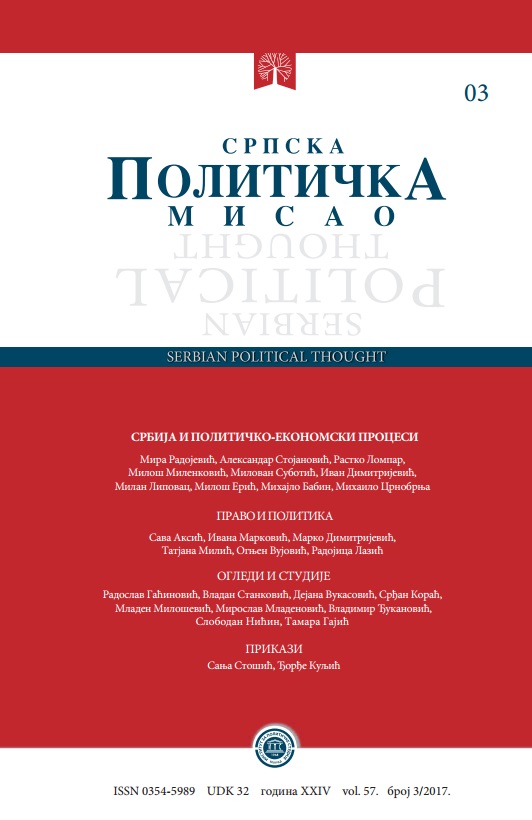Оснивање Хрватске православне цркве у контексту немачке политике и ратних интереса у окупираној Југославији
Founding of the Croatian Orthodox Church in the Context of German Politics and War Interests in Occupied Yugoslavia
Author(s): Aleksandar Stojanović, Rastko LomparSubject(s): Christian Theology and Religion, History of Church(es), Diplomatic history, Politics and religion, WW II and following years (1940 - 1949)
Published by: Институт за политичке студије
Keywords: Croatian Orthodox Church (COC); Russian Orthodox Church in Exile; Serbian Orthodox Church (SOC); Independent State of Croatia (ISC); German diplomacy
Summary/Abstract: Questions of initiative, motives and responsibility for founding of the Croatian Orthodox Church (COC) have been discussed in both Serbian and Croatian historiography for several decades now. Serbian authors tend to see the COC as mere phase of the Ustasha genocide on Serbs or as an instrument for denationalization and assimilation of Serbs in the Independent State of Croatia (ISC). Some Croatian author recognize this stance as just, while others strongly disapprove, insisting that founding of the COC was a positive step toward reconciliation and “normalization” of Serbo-Croatian relations, an instrument for dismantling of “great-Serbian hegemony”. Primary historical sources, of both German and Croatian origin, show that the initiative came from the very top of the Ustasha regime, supported by German institutions and with main goals to prevent further growth of the uprising and to pacify Serbian population. Historical sources reveal a complex but pragmatic approach of German Ministry of foreign affairs in occupied Yugoslavia, with primary focus on war and political interests of Nazi Germany. This article shows that the foundation of the COC was a result of complex political, security and national relations in the ISC, a part of multilayer solution of so-called Serbian question. Historical sources downplays the role of German informative organizations (Gestapo, Abwher, SD) as creators of the COC, although their role in recruitment of clergy cannot be overlooked.
Journal: Српска политичка мисао
- Issue Year: 2017
- Issue No: 3
- Page Range: 35-53
- Page Count: 19
- Language: Serbian

